Securities Lending
Earn extra income from the securities you already own
Discover a new source of passive income
Securities Lending is a free service offering an additional way to generate revenue from your existing portfolio. Just let Swissquote lend your securities to institutions who are looking to borrow them, and receive your share of the generated revenue.
Have your cake, and eat it too!
_
Retain beneficial ownership
You will still receive dividends or substitute dividends. You can sell your securities at any time.
Absolute peace of
mind
_
We do the work of finding suitable borrowers for your securities, and we deposit any revenue to your account once a month. We only lend your securities to reputable, top tier institutions and keep at least 105% collateral for your protection.

How much can you earn?
_
Securities lending is demand-driven: the chances to match with borrowers and the potential earnings can vary greatly depending on the borrower and the market demand for any given security.
The gross return rate for loaned securities ranges from 0.5% to over 4% for any given loan.
This example provides hypothetical returns and does not guarantee future results. It is for illustrative purposes only and should not be considered a personalised recommendation or investment advice.

Frequently asked questions
_
Securities lending offers additional returns, over and above the returns generated by the general performance of the portfolio.
Yes, you retain full control of your loaned securities. You can sell them anytime, without any hassle. You will receive any revenue earned while the security was on loan, including dividends in the form of cash payments.
No. As a client you will not notice any difference in your investments and trading activities while your securities are on loan (except for the lending revenue deposited monthly into your account).
The service is free and will not cost you anything.
When we lend your securities, we do incur some operational costs. The income you receive will be based on when and for how long your securities were on loan, and paid to you net of these costs.
The service is now available to all customers.
The first time you log into the eTrading platform from our website, you will be asked to agree to the specific terms for the service. Once done, you can enable or disable this at will with a simple switch in the Securities Lending section of our platform.
We only lend to reputable, top-tier banks and financial institutions, who often borrow securities to ensure the smooth running of capital markets. For instance, they may be looking to borrow securities to help ensure the timely settlement of trades or simply to use them as collateral.
No, you can only choose to activate the Securities Lending service for the entirety of your portfolio. Also, remember that there is no guarantee that we will be able to find a borrower for your securities.
Stocks, as well as some ETFs and bonds are currently eligible for lending. We are planning to make the service available for more instruments in the future.
It is very unlikely. Securities Lending is demand-driven, so Swissquote cannot guarantee that it will find borrowers interested in your securities. Remember that general securities with a liquid supply are usually in low demand, while rarer products with a limited supply have a greater potential to be loaned out and yield greater returns.
If any of your securities are loaned out, we will deposit the revenue directly into your account once each month, and you will receive monthly statements in the Documents section of your account, showing which securities were loaned and how much income each loan generated for you.
The duration of the loan depends on the borrower, and the market demand for your securities. Of course, if you decide to sell a security or disable the service in the Securities Lending section of the eTrading platform, your security will be recalled, and you will cease to accrue revenue in that position.
We will recall your sold securities in time for settlement. You will keep any lending revenue you earned up until the recall.
There are some downsides which may make this service unsuitable for certain investor profiles. Here’s a summary of the main drawbacks:
- When shares are out on loan, you temporarily lose the right to vote, for instance at the annual general meeting of the issuing company.
- You may receive cash payments in lieu of dividends on loaned securities.
- Borrower default is extremely unlikely, as all borrowers are tier-1 banks. This means that they have very strong capital reserves. In the very unlikely event that a borrower does default, and if Swissquote is unable to return the loaned securities, Swissquote will compensate you by using the collateral
See the terms and conditions for more detailed information.
Most clients will not notice any difference in their investments and trading activities while their securities are on loan (except for the lending revenue deposited monthly into their account!). However, there are some downsides which may make this service unsuitable for certain investor profiles.
You may temporarily lose the right to vote granted by shares on loan, for instance at the annual general meeting of the issuing company. However, the bank may, at its sole discretion, recall positions prior to important corporate actions.
While we will endeavour to recall loans before the ex-date of any dividend, you may, from time to time, also receive cash payments in lieu of dividends for loaned securities. Such income may be taxed differently, and you should consult a tax professional if you need guidance on how to report such income.
See the terms and conditions for more detailed information.
You will receive monthly statements on your lending revenue in the Documents section of your account.
The most likely reason that you are not receiving reports is simply that we could not find any borrowers for your securities. Remember that securities lending is demand-driven, and we do not guarantee that we can find a match for your securities. However, if you have any doubts, do not hesitate to contact our Customer Care Centre.
